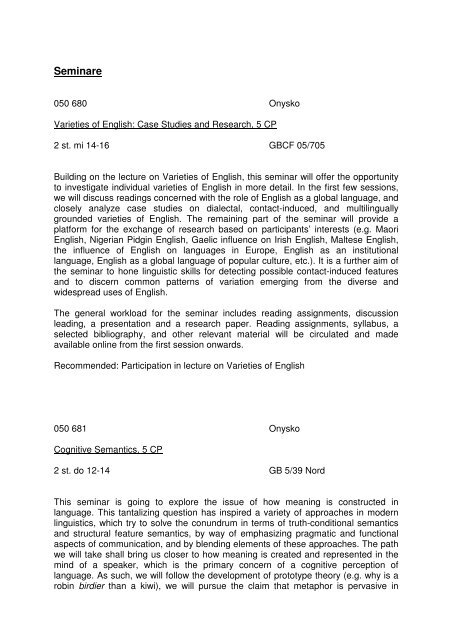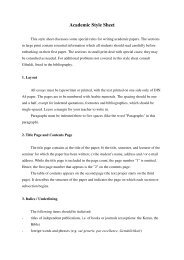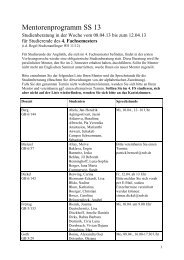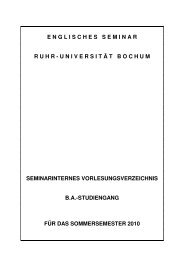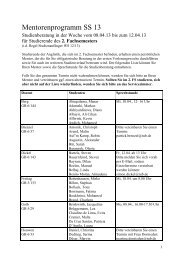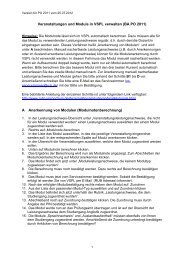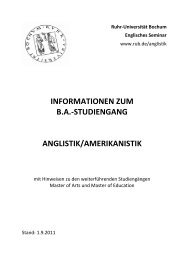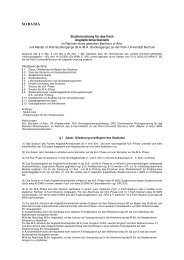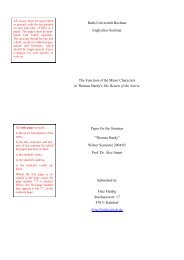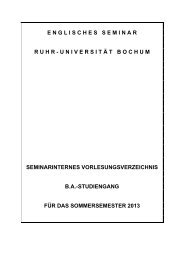Englisches Seminar - Ruhr-Universität Bochum
Englisches Seminar - Ruhr-Universität Bochum
Englisches Seminar - Ruhr-Universität Bochum
You also want an ePaper? Increase the reach of your titles
YUMPU automatically turns print PDFs into web optimized ePapers that Google loves.
<strong>Seminar</strong>e<br />
050 680 Onysko<br />
Varieties of English: Case Studies and Research, 5 CP<br />
2 st. mi 14-16 GBCF 05/705<br />
Building on the lecture on Varieties of English, this seminar will offer the opportunity<br />
to investigate individual varieties of English in more detail. In the first few sessions,<br />
we will discuss readings concerned with the role of English as a global language, and<br />
closely analyze case studies on dialectal, contact-induced, and multilingually<br />
grounded varieties of English. The remaining part of the seminar will provide a<br />
platform for the exchange of research based on participants’ interests (e.g. Maori<br />
English, Nigerian Pidgin English, Gaelic influence on Irish English, Maltese English,<br />
the influence of English on languages in Europe, English as an institutional<br />
language, English as a global language of popular culture, etc.). It is a further aim of<br />
the seminar to hone linguistic skills for detecting possible contact-induced features<br />
and to discern common patterns of variation emerging from the diverse and<br />
widespread uses of English.<br />
The general workload for the seminar includes reading assignments, discussion<br />
leading, a presentation and a research paper. Reading assignments, syllabus, a<br />
selected bibliography, and other relevant material will be circulated and made<br />
available online from the first session onwards.<br />
Recommended: Participation in lecture on Varieties of English<br />
050 681 Onysko<br />
Cognitive Semantics, 5 CP<br />
2 st. do 12-14 GB 5/39 Nord<br />
This seminar is going to explore the issue of how meaning is constructed in<br />
language. This tantalizing question has inspired a variety of approaches in modern<br />
linguistics, which try to solve the conundrum in terms of truth-conditional semantics<br />
and structural feature semantics, by way of emphasizing pragmatic and functional<br />
aspects of communication, and by blending elements of these approaches. The path<br />
we will take shall bring us closer to how meaning is created and represented in the<br />
mind of a speaker, which is the primary concern of a cognitive perception of<br />
language. As such, we will follow the development of prototype theory (e.g. why is a<br />
robin birdier than a kiwi), we will pursue the claim that metaphor is pervasive in


